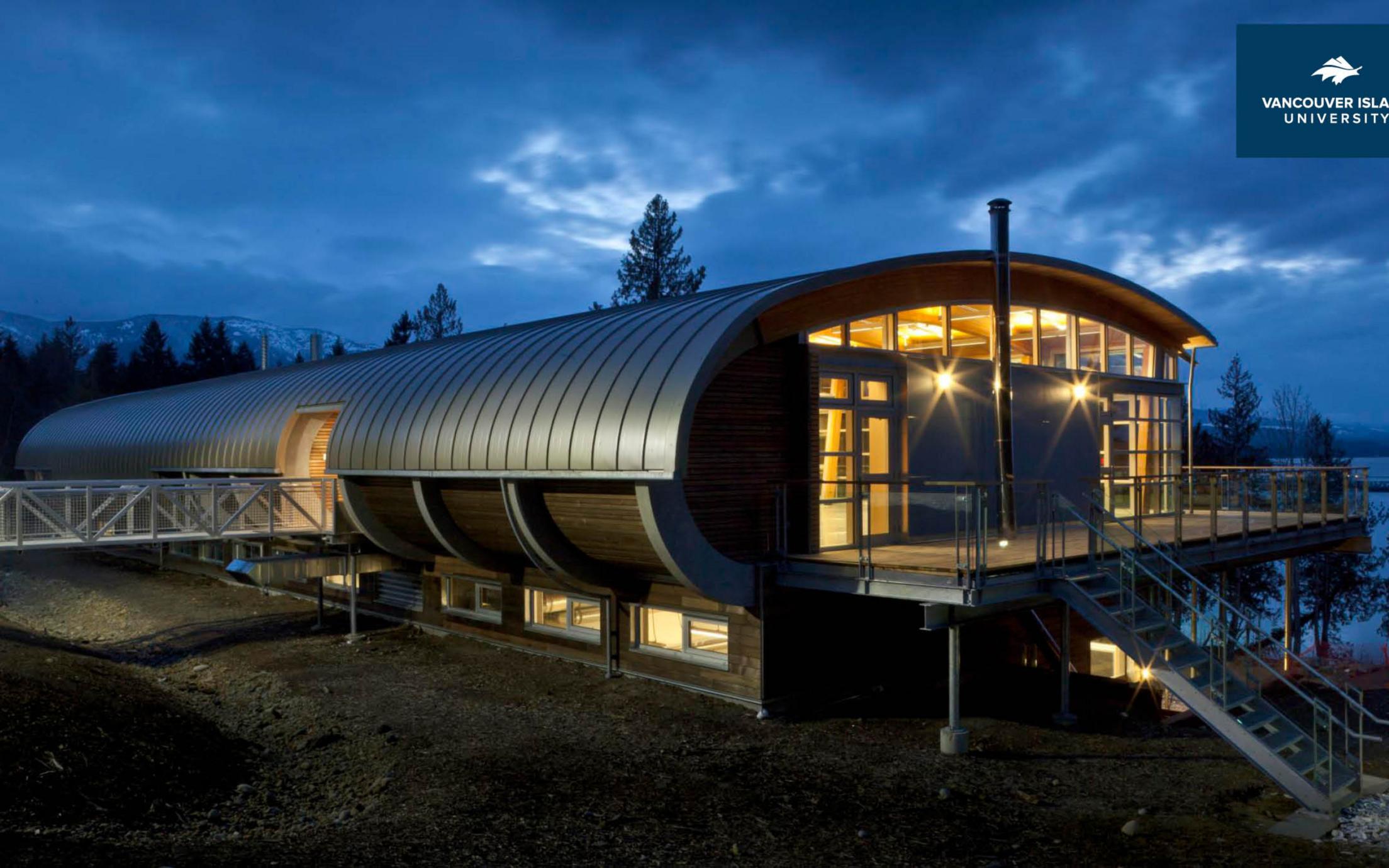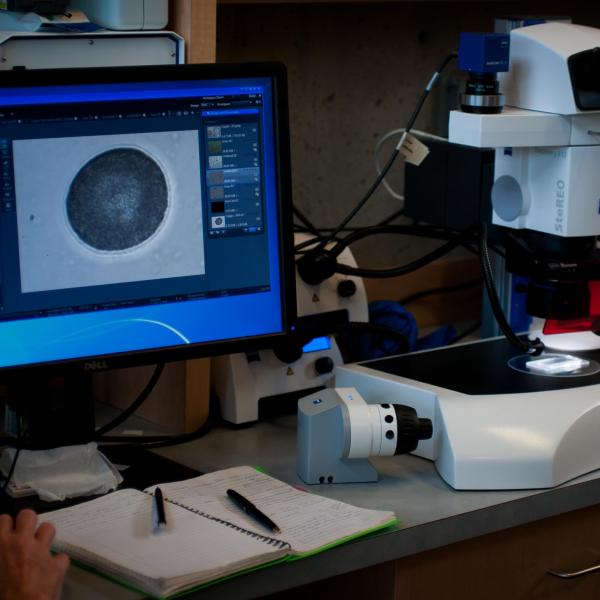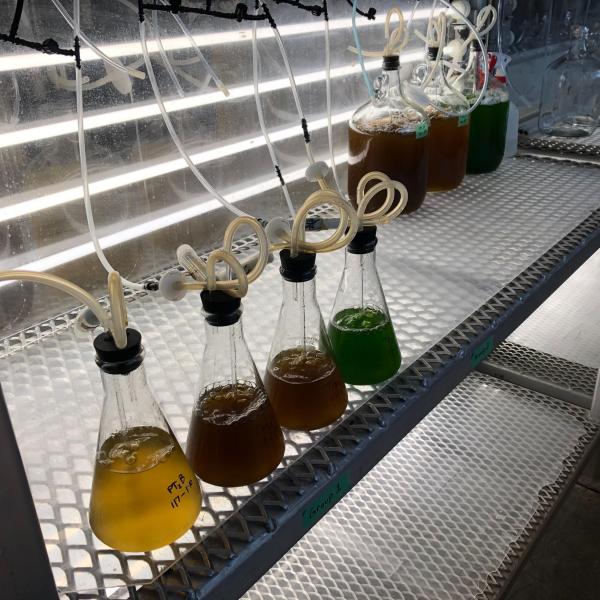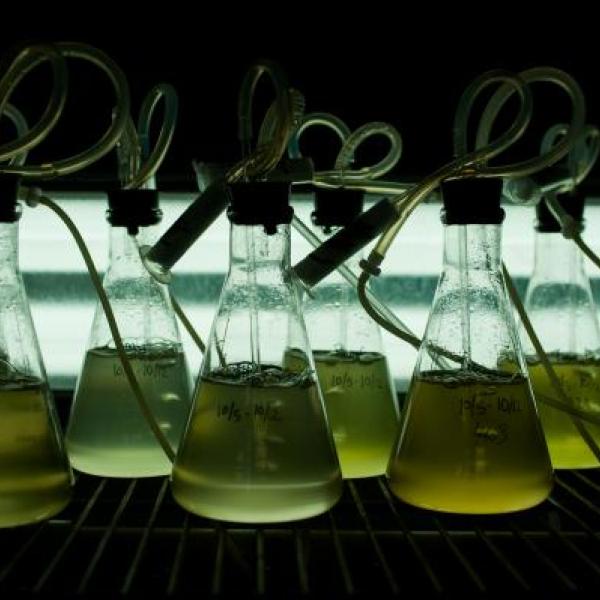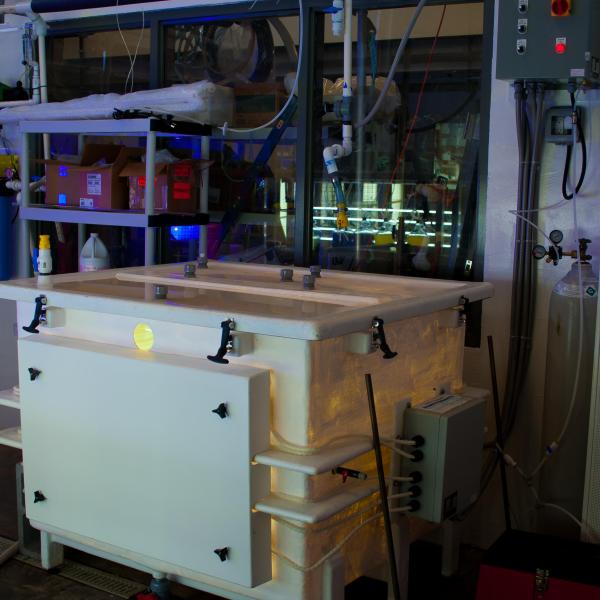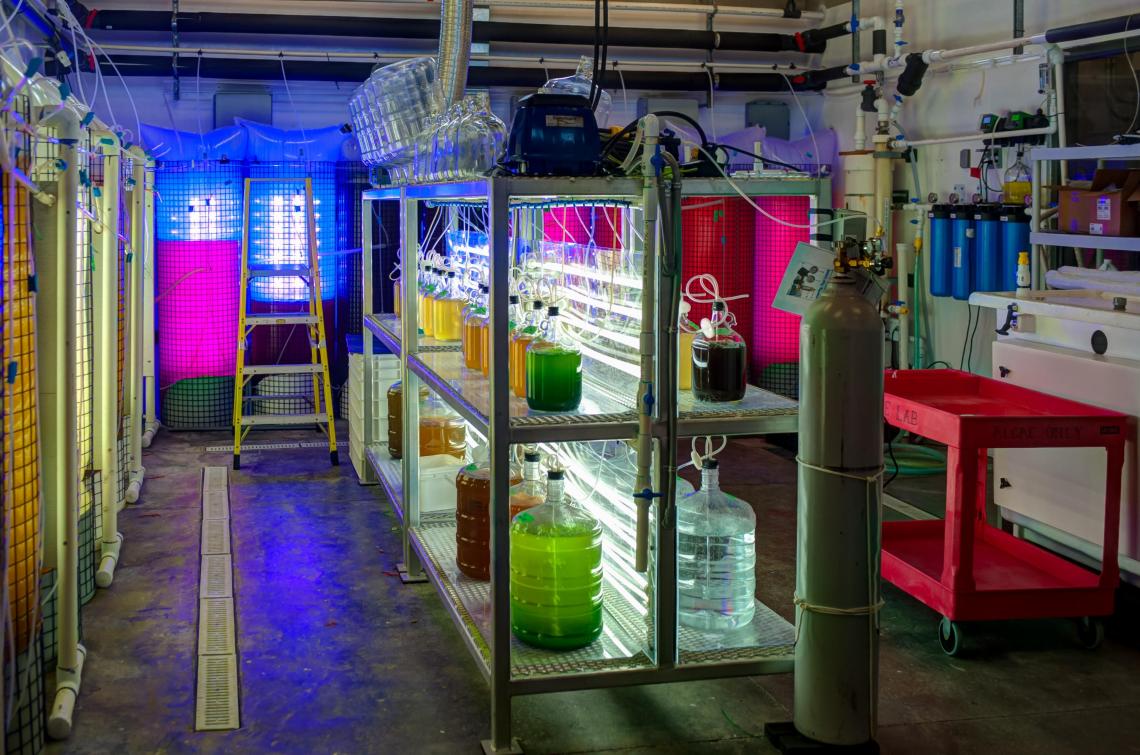
In this two-part algae laboratory, students will learn about our algae culture lab and the important part algae plays in the marine ecosystem.
Session One (60 minutes)
We will begin with an introduction to photosynthesis and algae. We will discuss how algae grows and why it is an important part of marine ecosystems. Students will have a tour of our algae laboratory and will view different types of algae on a microscope. They will learn how to count algae cells to determine density. We will work together to discuss how to evaluate algae that is growing.
In groups, students will work together to develop a hypothesis, prediction, and methods for growing their own algae flask. By the end of this session, students will decide what conditions their algae will be set in for one week.
At the end of this first session, students will watch as we inoculate their flasks for their experiment.
Teachers will receive by email a daily update of the algae flasks in the laboratory so that students can fill in their data sheets. Teachers will receive one picture of each flask (to assess colour) and a microscope image (cell count).
Session Two (30 minutes)
For the second session, students will be led to interpret and discuss their results. We will create a graph and discuss general trends seen by each group.
Materials
Teachers will receive PDF documents that should be printed and handed out to students before the session.
1. Introduction to Algae reading- 1 page
2. Experimental Design Worksheet- 1 page
3. Laboratory Protocols for Algae Growth- 1 page
4. Data sheet- 1 page
5. Results activity- 1 page
After completing this laboratory, students should have an understanding of
Photosynthesis in marine environments
Types of algae: diatoms and dinoflagellates
Experimental design
Data collection
Data visualization
Teachers are encouraged to further explore this laboratory by having students create a laboratory report or poster of their experiment.
The complexity of this laboratory is designed to be scaled up or down depending on grade level.
- Grade 4 Science: Sensing and responding: - other animals
- Grade 7 Science: Survival needs
- Grade 8 Science: Photosynthesis and cellular respiration
- Grade 9 Science: Asexual reproduction: mitosis
- Grade 11 Life Sciences: Cells are the basic unit of life: photosynthesis

Book Your Virtual Field Trip To Deep Bay
Get started by filling out our booking request form
